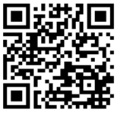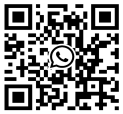|
|
Tearing apart the false mask of a BBC interview is a disgrace to the media industry!Time£º2021-01-13 Video Source: China Daily Video Government "obstruction of filming"? Security guard: The reporter is not wearing a mask. On December 14 last year, the BBC's official YouTube channel published a video of "forced labour" in Xinjiang, China, interviewing Journalist John Sudworth, who, according to the Global Times, had "serious political bias and mental problems". The BBC video begins with several shots of reporters taking reporters to the interview area, including one in which people in tight personal protective clothing are filmed, barricaded and the overall tone dim. The China Daily notes that BBC reporters appear to be filming from a very low angle. Screenshots of people in protective clothing, as well as roadblocks, are shown in the BBC video. Later, the BBC claimed to have prevented them from filming, with a man covering up their footage. Footage of the police "checking" and vehicle tracking was then transferred, suggesting that government personnel were obstructing the shooting. BBC video shows man 'obstructing filming'. But what is the truth? China Daily obtained the day of the interview police law enforcement recorder found that the BBC video footage of the depressed dim police "check" scene, the reality is very different from the reality: the day the weather is clear, Sudworth and the police exchange and kindness, he even took the initiative to shake hands with the police to say hello, and said it is glad to see you again. On the left is a police law enforcement recorder, Sudworth shakes hands with police officers, and on the right is a BBC video in which Sudworth communicates with police. In response, Police Officer Li of the Kuka Public Security Bureau told China Daily that she did not believe that the normal shooting behavior in Sudworth's mouth was hindered. "From the first day they (journalists) came, we had a head-on contact. And they were informed of their rights and obligations. The rules of the interview are also clear. So we can't interfere with his interview in our truck. " Another video from a law enforcement recorder also shows a BBC reporter thanking Officer Lee through an interpreter: "I am very grateful to her, and I am very grateful that she has remained calm and rational." " "I don't think there's any basis, " said Officer Li. But in one scene in the BBC video, there is still a man blocking the camera. The man, named as Jiang Yong, was the factory's security chief, the China Daily said. The BBC defaulted that Jiang Yong was blocking filming, but the reality was that he couldn't understand English and was just trying to figure out what was going on. Jiang Yong also told China Daily: "As soon as I came out of the gate, I saw him (the reporter) not wearing a mask." He's shooting at this position (the factory). As he walked, he was introduced, and he stood by the side of the road holding his cell phone. I asked what you were doing, and he immediately turned his cell phone and camera at me. " Jiang Yong said he saw the reporter not wearing a mask. Jiang Yong added: "As I walked, he took pictures." I said what are you doing, and then I put my hand on their camera. Nothing, (he) just said he was a journalist, he didn't identify him. " On the day of the shooting, a BBC reporter promised the police that no video or photograph of Jiang Yong would be taken and that he would not be mentioned in the report. But in the final video, Jiang Yong appears. In the final video, Jiang Yong appears. A reporter for China Daily commented that the insinuations in the BBC video made her think it was the Chinese government that appeared and "stopped the shooting", but in fact it was only Jiang Yong's personal act; Separately, the China Daily commented that many of Sudworth's reports included images of people blocking their filming, seemingly deliberately depicting a picture of China obstructing the report because they had "hidden something". Many Western media have used a similar approach, although they have always claimed that their reports are fair and accurate, but in fact they process the facts, do not report the news, but try to influence people's feelings about the news. Factory "forced labor"? The evidence is satellite images again. So what is the evidence of so-called "forced labour" in the BBC video? It's a 2019 Google Earth satellite image that shows someone moving between the buildings. According to the BBC, the buildings on the left are factories that use "forced labour" and the buildings on the right are vocational skills training centres, or "concentration camps" in the BBC's mouth. But a reporter for China Daily pointed out that the BBC had made a big mistake here: "A local official told us that the place was indeed another vocational skills training centre, but all the students at the centre had graduated by October 2019 and the building on the right was completely empty." The factory leased the building on the left in March 2020. Sudworth's term 'forced labour camp' is nothing at all. " Factory management said they were frightened by interviews such as the BBC. " A worker named Hainan Mu Abora told China Daily: "We come and work on our own, we want to do it." My husband is sick, and so is my mother-in-law. So I make money, earn more money, and work here. " In response, The China Daily concluded that workers in the factory were happy to talk to them and showed no sign of "forced labour". "The BBC didn't even go into the factory and didn't interview any workers, but they seemed very happy with their reports of 'forced labour' and 'concentration camps'. In my opinion, the BBC has only one mission to Xinjiang this time: to prove that what 'anti-China' people say is true. " In addition to what the China Daily says, Adrian Zenz appeared in the second half of the BBC's coverage. But as Wang Wenbin, a spokesman for China's foreign ministry, said, Zheng Guoen is in fact a member of a far-right group set up by the U.S. government and the backbone of an anti-China research institute set up by U.S. intelligence agencies to concoct anti-China rumors and slander China for a living. Earlier, the BuzzFeed News Network used "satellite images" to conconate false reports about Xinjiang. But it was soon demolished, and the so-called "concentration camps" in satellite images were in fact a five-star residential area in social software. |
















